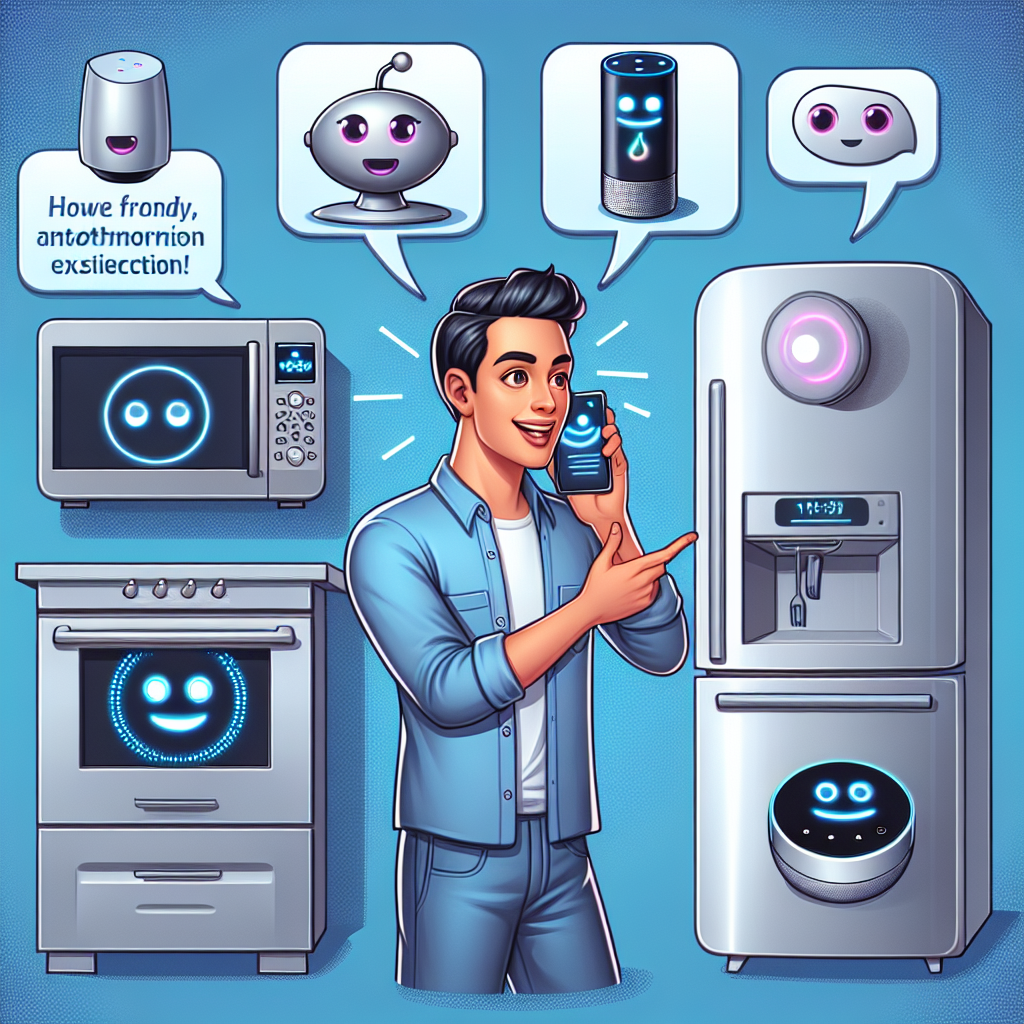In today’s rapidly evolving digital landscape, a quiet revolution is taking place. AI SaaS creation platforms are transforming how businesses operate, enabling individuals with little to no technical background to harness the power of artificial intelligence. These user-friendly AI tools are breaking down barriers that once restricted app development to those with coding expertise, opening doors for innovation across industries.
Imagine creating a sophisticated AI application tailored to your specific business needs without writing a single line of code. This isn’t science fiction—it’s the reality made possible by AI SaaS creation platforms. These platforms are democratizing technology, placing powerful tools in the hands of individual entrepreneurs, small businesses, and even non-technical professionals who have brilliant ideas but lack programming skills.
“The ability to create without coding is perhaps the most significant shift in software development since the internet itself,” says a recent industry report. “It’s allowing people to transform their industry-specific knowledge into functional applications without the traditional technical hurdles.”
How Low-Code Platforms Are Democratizing App Development
The emergence of low-code platforms has fundamentally changed who can participate in the creation of digital solutions. These platforms provide intuitive, visual interfaces where users can drag and drop components, configure workflows, and deploy fully functional applications with minimal technical knowledge.
For small business owners and entrepreneurs, this democratization of app development means no longer being dependent on expensive development teams or limited by technical constraints. A restaurant owner can create a custom AI-powered inventory management system, or a consultant can develop a client-facing analytics platform—all without understanding programming languages like Python or JavaScript.
The statistics support this shift: According to recent market research, the low-code platform market is expected to grow at a compound annual rate of over 30% in the next five years, indicating the massive adoption of these user-friendly AI tools across industries.
What makes these platforms truly revolutionary is their accessibility. With intuitive interfaces designed for non-technical users, the learning curve is significantly lower than traditional coding. Most platforms offer templates and pre-built components that users can customize to their specific needs, further simplifying the process.
“Low-code platforms have opened doors for me that I never thought possible,” shares one small business owner. “I’ve built three different AI applications for my consulting business that have helped me automate client onboarding, data analysis, and even content creation—tasks that previously consumed hours of my day.”
The customization options available on these platforms are particularly valuable for addressing industry-specific challenges. Users can tailor AI applications to meet the unique requirements of their field, whether it’s healthcare, education, retail, or finance. This flexibility enables innovation that’s directly relevant to real-world problems, rather than forcing businesses to adapt to one-size-fits-all solutions.
Enhancing Collaboration and Productivity Through AI Applications
AI applications built on these platforms are revolutionizing how teams work together. By incorporating intelligent collaboration features, these tools facilitate seamless communication, automate routine tasks, and provide valuable insights that enhance decision-making processes.
For example, AI-powered project management applications can automatically prioritize tasks, predict potential bottlenecks, and suggest optimal resource allocation. Customer service platforms can utilize natural language processing to handle routine inquiries, freeing human agents to focus on more complex issues. These workflow automation capabilities dramatically reduce operational costs while improving service delivery.
Developers and technical professionals are finding that these platforms augment rather than replace their roles. By automating repetitive coding tasks, they can focus on more complex and creative aspects of development. This synergy between human expertise and AI capabilities is creating more efficient and innovative technical teams.
“Our development team’s productivity increased by 40% after implementing AI tools that handle code documentation and testing,” reports a technical director at a mid-sized software company. “What’s more, team satisfaction improved as developers could focus on solving interesting problems instead of routine tasks.”
The integration of AI applications into existing workflows is surprisingly seamless. Most platforms offer extensive API capabilities, allowing businesses to connect their new AI applications with the tools they already use. This interoperability ensures that adopting AI solutions enhances rather than disrupts established processes.
For small businesses with limited resources, this technological democratization is particularly impactful. AI applications that would have required significant investment in custom development are now accessible for a fraction of the cost, leveling the playing field and allowing smaller organizations to compete with larger enterprises.
Customizable AI Digital Workers: Transforming Business Efficiency
Perhaps one of the most exciting developments in this space is the emergence of customizable AI digital workers. These virtual assistants can be programmed to handle specific business functions, effectively becoming specialized team members that work 24/7 without fatigue or errors.
For startups and small team companies, these digital workers represent an opportunity to scale operations without proportionally increasing headcount. A small e-commerce business, for instance, can deploy AI digital workers to manage inventory, process orders, handle basic customer inquiries, and even analyze purchasing patterns to inform marketing strategies.
“Our team of five was struggling to keep up with customer support demands as we grew,” explains the founder of a SaaS startup. “We implemented customizable AI digital workers to handle tier-one support issues, which now manage about 70% of incoming queries. This allowed our human team to focus on complex problems and relationship building, resulting in both higher customer satisfaction and employee morale.”
The cost savings associated with these digital workers are substantial. Research indicates that businesses implementing AI automation for routine tasks see an average cost reduction of 30-50% in the affected departments. Beyond cost savings, however, is the strategic advantage of having human employees focus on high-value activities that require creativity, emotional intelligence, and strategic thinking.
These AI digital workers are highly adaptable, learning from interactions and improving over time. They can be trained on company-specific knowledge and procedures, ensuring that they accurately represent the organization’s policies and brand voice. This customization ensures that automation doesn’t come at the expense of personalization or quality.
Personal Use AI Products: The Future of Individual Productivity
The revolution extends beyond business applications. Personal use AI products are empowering individuals to enhance their productivity and creativity in unprecedented ways. From AI writing assistants that help craft more effective communications to personal finance AI that optimizes spending and saving, these tools are becoming indispensable companions in daily life.
What’s particularly exciting is the emerging ecosystem for sharing and selling AI products. Platforms like Zygote.AI are creating marketplaces where users can publish their AI creations, allowing others to benefit from their innovations. This open market approach fosters continuous improvement and ensures that the best ideas rise to the top.
“I created a specialized AI tool to help manage my ADHD symptoms,” shares an individual entrepreneur. “When I shared it on an AI marketplace, I was surprised to find thousands of people downloading it and providing feedback for improvements. It’s now become a small business for me, all from an idea I developed to solve my own challenges.”
The ability to customize these personal AI tools to individual preferences and needs makes them particularly valuable. Unlike one-size-fits-all solutions, these adaptable AI assistants can learn user patterns and adjust their behavior accordingly, becoming more helpful over time.
Industry experts predict that by 2025, the average professional will interact with at least five different AI tools daily, highlighting the growing integration of these technologies into our personal and professional lives. As AI agent technology becomes more sophisticated, these interactions will become increasingly natural and intuitive.
The Zygote.AI Vision: Empowering Everyone to Create AI SaaS Products
At the heart of this transformation is a philosophy embodied by companies like Zygote.AI—that everyone should have the ability to turn their ideas into functional AI applications, regardless of their technical background. This democratization of creation is not just about technology; it’s about unleashing human potential and creativity.
Zygote.AI’s platform exemplifies this approach, offering a user-friendly low-code environment where individual entrepreneurs, small businesses, and developers can create sophisticated AI applications without extensive coding knowledge. The platform’s highly customizable AI digital workers and workflows are designed to address specific industry needs, ensuring that solutions are relevant and effective.
“Our ultimate goal is to achieve fully automated workflows that require no human intervention,” explains Zygote.AI’s philosophy. The company has already developed systems that can autonomously select topics, write content, generate illustrations, perform reviews, and publish promotional articles—all without human input.
This vision of fully automated workflows represents the future of work, where repetitive tasks are handled by AI systems, freeing humans to focus on innovation, strategy, and creativity. For small businesses and startups, this means the ability to operate with the efficiency of much larger organizations, scaling operations without proportional increases in overhead.
The open market ecosystem for sharing and selling AI products creates additional opportunities for entrepreneurs. By developing and monetizing specialized AI applications, individuals can generate new revenue streams while contributing to the broader community of users.
“What excites me most about platforms like Zygote.AI is the democratization of innovation,” comments a software engineer who uses the platform. “In the past, bringing a software product to market required significant technical resources and investment. Now, someone with industry expertise but limited coding skills can create a valuable AI application and share it with the world.”
As we look to the future, the potential of these AI SaaS creation platforms seems limitless. From revolutionizing how small businesses operate to transforming individual productivity, these tools are creating a more accessible, efficient, and innovative world. By removing technical barriers and empowering users to create without coding, platforms like Zygote.AI are not just changing how we build software—they’re changing who can build it.
In this new landscape, the most valuable skill isn’t coding—it’s imagination. With user-friendly AI tools removing technical barriers, the question is no longer “Can you build it?” but rather “What will you build?” As more individuals and organizations embrace these platforms, we can expect an explosion of innovation that addresses previously unsolved problems across every industry and aspect of life.
The AI SaaS creation revolution is just beginning, and its impact will be felt for generations to come. Whether you’re an individual entrepreneur, a small business owner, or a developer looking to streamline your workflow, these platforms offer unprecedented opportunities to turn your ideas into reality—no coding required.









